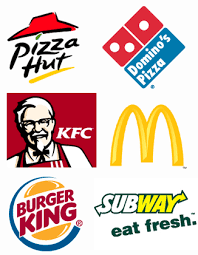Subject: txt lbrty nanny - The United Kingdom's National Institute for Clinical Excellence (NICE) claims that junk food is responsible for 40,000 deaths a year. However, the evidence on which this claim is made is highly dubious, says Rob Lyons, deputy editor of Spiked.
The United Kingdom's National Institute for Clinical Excellence (NICE) claims that junk food is responsible for 40,000 deaths a year. However, the evidence on which this claim is made is highly dubious, says Rob Lyons, deputy editor of Spiked.
For most people there is no evidence that cutting salt is of any benefit at all; indeed, for some people it could be harmful:
- The idea that high salt automatically equates to shortened lives is wrong; the Japanese have a very high salt diet and enjoy longer lives than anyone else.
- Our bodies are incredibly sensitive to the appropriate balance of salt and water in our blood, regulating it on a minute-by-minute basis to keep it within a very narrow range; there is no consensus that such salt-reduction policies would be beneficial.
There has been plenty of evidence for a very long time that attempts to reduce saturated fat consumption have no effect on cardiovascular disease:
- The Multiple Risk Factor Intervention Trial (MRFIT), encouraged a large number of middle-aged American men with high cholesterol to change their diet in an effort to reduce their saturated-fat intake and, therefore, their cholesterol while another large group of middle-aged men were left to their own devices.
- Slightly more men in the low-fat diet group died than in the control group, but in reality there was no practical difference in outcomes.
As for trans fats, the evidence that reducing our intake will "save lives" is once again weak. According to a study from the New England Journal of Medicine in 2006:
- A 2 percent increase in energy intake from trans-fatty acids was associated with a 23 percent increase in the incidence of coronary heart disease.
- That figure of 23 percent sounds impressively high, but epidemiological studies are very blunt instruments.
- The U.S. National Cancer Institute noted in 1994, in epidemiological research, increases in risk of less than 100 percent are considered small and are usually difficult to interpret; such increases may be due to chance, statistical bias or the effects of confounding factors that are sometimes not evident.
Source: Rob Lyons, "The tyranny of the anti-junk food crusade," Spiked, June 23, 2010.
[What kind of ideologues buy this stuff?...
READ MORE













No comments:
Post a Comment